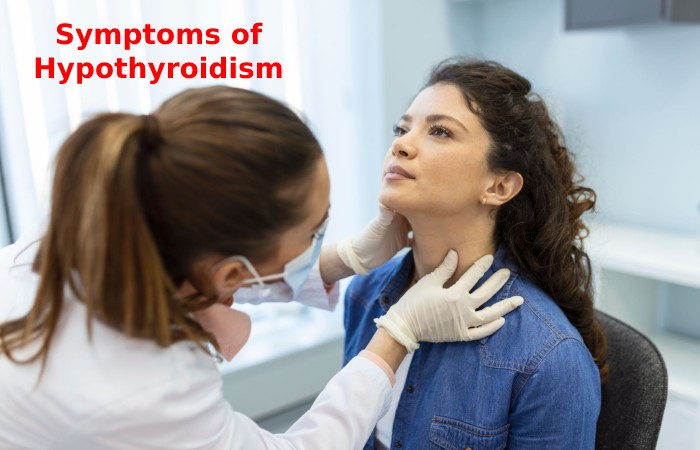Table of Contents
Introduction
Hypothyroidism or thyroid is a pathology that distresses 2% of adult women. symptoms mostly perceive in starting stage, but in real which can trigger health problem, such as infertility, overweight.
Define Hypothyroidism?
Hypothyrodisim is a disease which defects the thyroid gland. basically, it is production of thyroid hormones (T4 and T3)to decrease, affecting the proper functioning of the metabolism.
When this type of “metabolic error” occurs, there is a greater secretion of TSH to compensate for the lack of production of the thyroid gland, triiodothyronine (T3) and thyroxine (T4) and even level them. The issue develops when the thyroid is unable to create the proper amounts, which can then start to interfere with various bodily processes, including the nervous system, the heart, and the digestive system.
Symptoms of Hypothyroidism

The symptomatology of Hypothyroidism occurs progressively and steadily. On many occasions, it can take many years. Therefore, at the initial stage of the disease, the symptoms may be almost invisible to the patient. It can be confused with common problems related to ageing.
Below, we will indicate some of the most prominent symptoms.
- Tiredness or fatigue
- Sensitivity to cold (icy character)
- Dry and brittle skin and hair
- Weight gain (obesity)
- Muscle weakness
- Depression
- Fragility in the nails
- Low mental concentration and even decreased memory.
- Excessive drowsiness.
- Enlarged thyroid gland (goitre)
Occasionally, Hypothyroidism can progress and present some severe symptoms. But, of course, this type of clinical picture is not very common.
- Heart failure
- Respiratory failure
- Generalized swelling (myxedema) may occur
- Loss of consciousness or coma
What are the Causes of Hypothyroidism?
There is no single reason that generates the decrease in the production of thyroid hormones (T3 and T4). Instead, this problem can be due to several factors. In the future, we will explain some of the most common causes.
Autoimmune Disease
Hashimoto’s thyroiditis is a pathology that progressively destroys the thyroid by aggressive antibodies. It is one of the most communal causes of Hypothyroidism in women. The reasons why this type of antibody development occurs are still being studied.
Hyperthyroidism Treatment
Hyperthyroidism is the reverse of Hypothyroidism; hormone production is elevated in that affectation. Well, some antithyroid medications or treatments to control this condition excessively decrease the production of T4, which causes Hypothyroidism.
Thyroid Surgery
Thyroid operations in which part of the thyroid gland is removed cause as a side effect the decrease in hormones. In this case, the specialist may indicate consuming medications (thyroid) to replace the function of the thyroid.
Radiotherapy
This medical process is undoubtedly aggressive but necessary in some types of cancer, such as the neck or head. But unfortunately, it can affect the functioning of the thyroid.
Other causes can cause Hypothyroidism. However, they are not as common, such as congenital disease, pregnancy, and iodine deficiency.
How is Hypothyroidism Cured? Treatment
Treatment of Hypothyroidism should be prescribe by a qualified physician who weighs the severity of the involvement. However, we can point out that the cure for Hypothyroidism is to increase the production of hormones. Therefore, synthetic thyroxine (T4) is prescribe since the body cannot produce it naturally.
Of course, this type of treatment requires medical supervision; It is necessary to attend the office every two months to check the level of hormones and TSH.
The specialist may indicate appointments with more ample spaces. But, in the initial part of the treatment, extensive communication between patient and doctor is require.
It should be note that the proper dosage determination may take some time. Therefore, it is essential to report side effects so the specialist can make adjustments.
